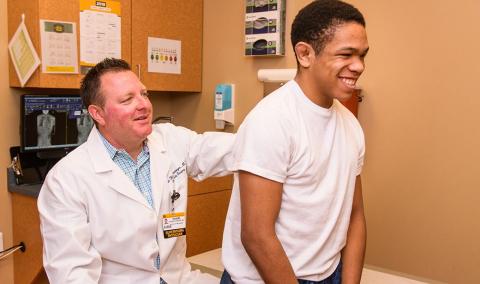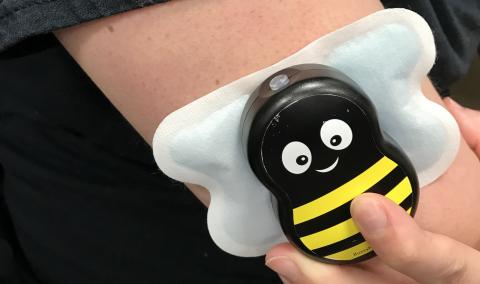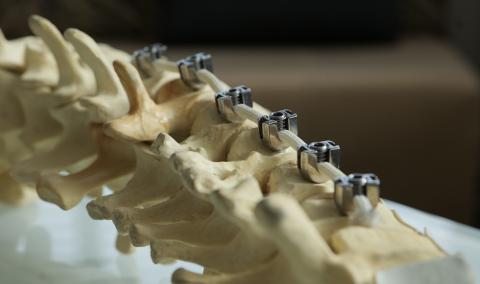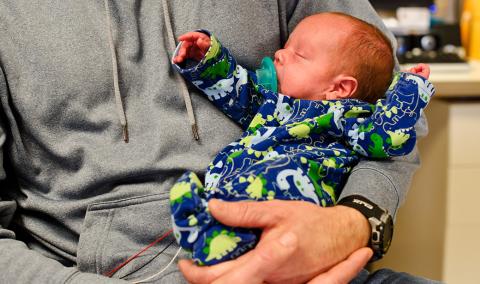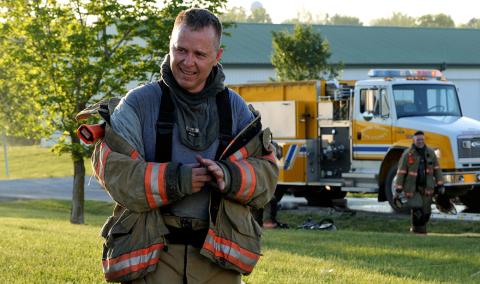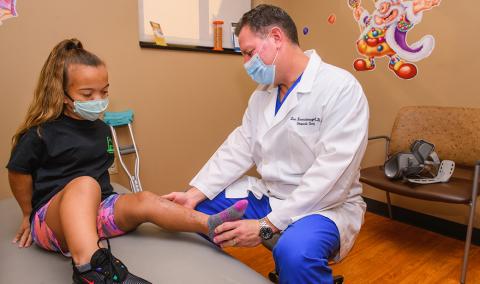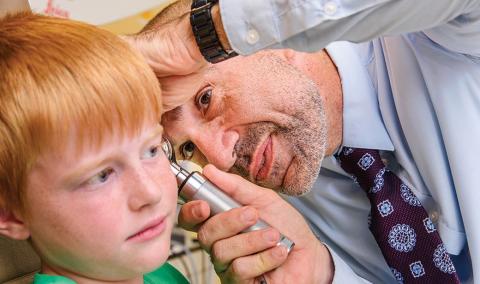Hypochondroplasia is a form of dwarfism estimated to affect one in every 15,000 to 40,000 newborns. Children with hypochondroplasia often experience slow growth after age 3, with disproportionally small arms and legs. Hearing loss is also a common problem.
If you have a child with hypochondroplasia, you want him or her to receive comprehensive care from a team of experts. At University of Missouri Health Care, we are the region’s experts in treating skeletal dysplasia diseases. We are actively involved with national research for treatments, and the leader of our team, Daniel Hoernschemeyer, MD, sits on the medical advisory board of the Little People of America so he can be actively involved with the issues affecting the health of skeletal dysplasia patients.
Hypochondroplasia Characteristics
People with hypochondroplasia are small — a median adult height of 4-foot-8 — with disproportionately short arms and legs and short, broad hands and feet. Another common trait is elbow contracture, a condition that causes the elbow to fall 20 to 60 degrees shy of full extension. About 10 to 20 percent of sufferers have bowed legs.
Cognitive disabilities affect about 10 to 12 percent of children with the condition, and learning disabilities impact half of the afflicted children. Roughly five to 10 percent of hypochondroplasia sufferers have seizures, which appear as a temporary inability to breathe. Large head size — hydrocephalus — is present in less than five percent of cases.
Hypochondroplasia does not affect life expectancy.
Hypochondroplasia Diagnosis and Testing
Genetic testing, radiologic imaging and clinical exams may be used to confirm a diagnosis of hypochondroplasia.
Resources for Families
Click here for more detailed information and resources on hypochondroplasia.
Related Conditions & Treatments
- Adolescent Medicine
- Chest Wall Deformities
- Down Syndrome
- Emergency Care for Kids
- Gastrostomy and Feeding Access Program
- Hyperbaric Oxygen Therapy
- Juvenile Diabetes
- Neonatology
- Pediatric Anesthesiology
- Pediatric Cancer
- Pectus Carinatum
- Pectus Excavatum
- Pediatric Cardiology
- Pediatric Dermatology
- Pediatric Development and Behavior
- Pediatric ENT (Ear, Nose and Throat)
- Pediatric Epilepsy
- Pediatric Eye Care
- Pediatric Gastroenterology
- Pediatric Infectious Diseases
- Pediatric Inpatient Rehabilitation
- Pediatric Nephrology
- Pediatric Neurology
- Pediatric Neurosurgery
- Pediatric Orthopaedics
- Pediatric Plastic Surgery
- Pediatric Primary Care
- Pediatric Psychiatry
- Pediatric Pulmonary Medicine
- Pediatric Sleep Medicine
- Pediatric Surgery
- Pediatric Surgical Services
- Pediatric Urology
- Pediatric Vascular Anomalies
- Pediatric Weight Management
- Sickle Cell Disease
- Aerodigestive Program







